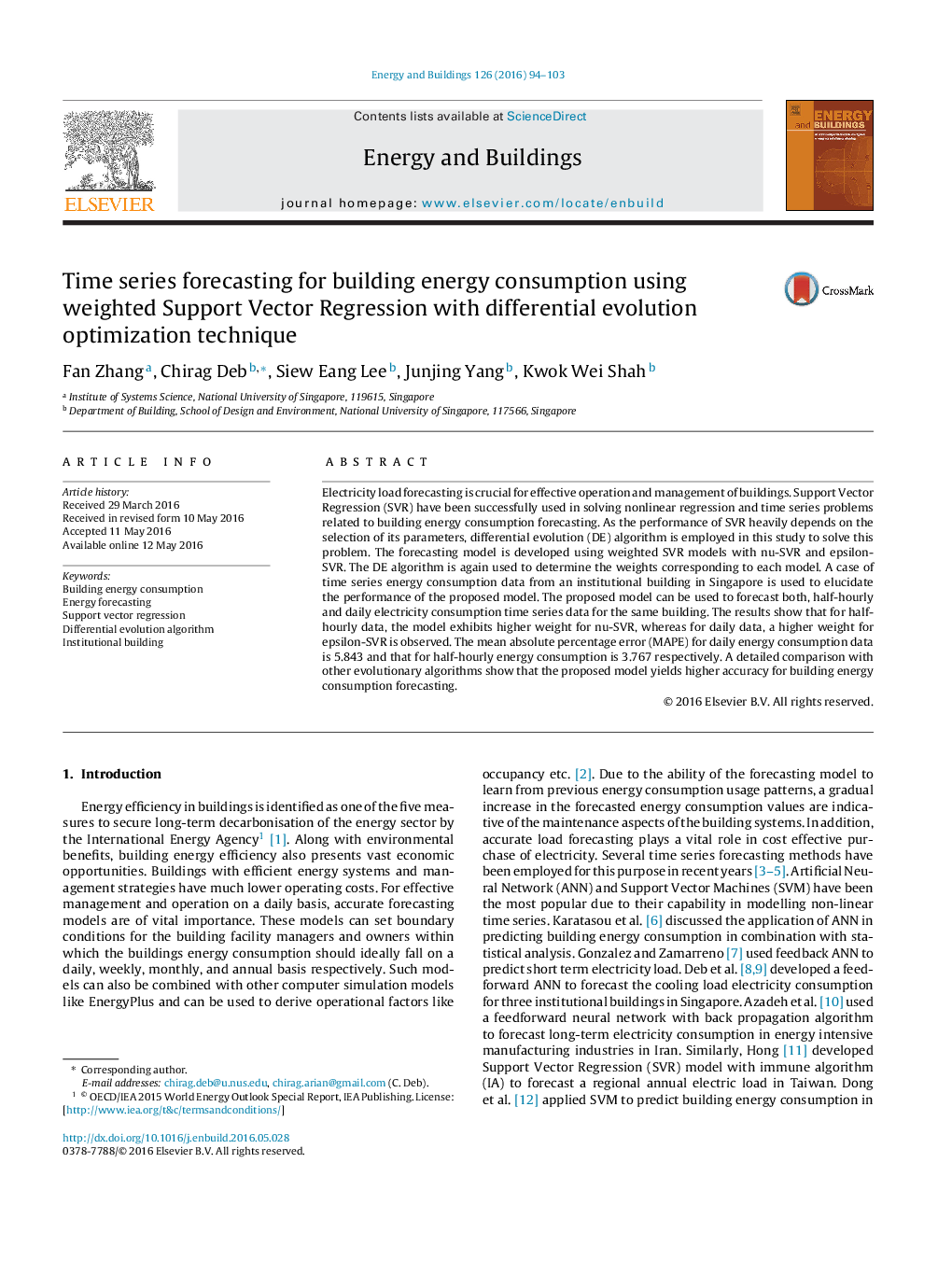| کد مقاله | کد نشریه | سال انتشار | مقاله انگلیسی | نسخه تمام متن |
|---|---|---|---|---|
| 261918 | 504006 | 2016 | 10 صفحه PDF | دانلود رایگان |
• A Weighted-hybrid Support Vector Regression model is presented to forecast building energy consumption of an institutional building.
• The parameter selection for the SVR models and optimization of the weights is done by the Differential Evolutionary algorithm.
• The developed model can be used to forecast both half-hourly and daily energy consumption without manually changing any model parameter.
• The model is compared with single SVR models in combination with other evolutionary algorithms like GA and PSO.
• Time series cross-validation is adopted to prevent the model from overfitting.
Electricity load forecasting is crucial for effective operation and management of buildings. Support Vector Regression (SVR) have been successfully used in solving nonlinear regression and time series problems related to building energy consumption forecasting. As the performance of SVR heavily depends on the selection of its parameters, differential evolution (DE) algorithm is employed in this study to solve this problem. The forecasting model is developed using weighted SVR models with nu-SVR and epsilon-SVR. The DE algorithm is again used to determine the weights corresponding to each model. A case of time series energy consumption data from an institutional building in Singapore is used to elucidate the performance of the proposed model. The proposed model can be used to forecast both, half-hourly and daily electricity consumption time series data for the same building. The results show that for half-hourly data, the model exhibits higher weight for nu-SVR, whereas for daily data, a higher weight for epsilon-SVR is observed. The mean absolute percentage error (MAPE) for daily energy consumption data is 5.843 and that for half-hourly energy consumption is 3.767 respectively. A detailed comparison with other evolutionary algorithms show that the proposed model yields higher accuracy for building energy consumption forecasting.
Journal: Energy and Buildings - Volume 126, 15 August 2016, Pages 94–103
